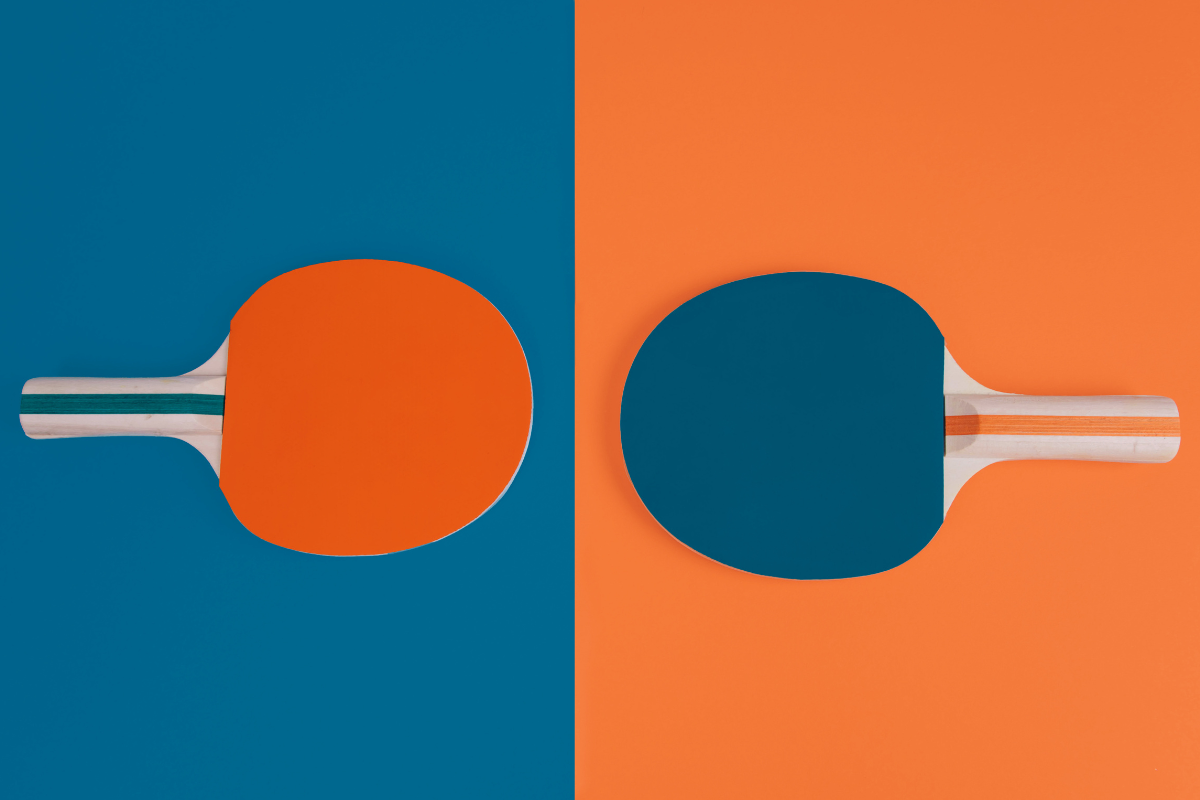My son, Eliel, is among the many talented athletes you will not hear about during the hours and hours of media coverage that will chronicle the Paris 2024 Olympic Games. Scandalous? Disrespectful? No, not all. He’s not competing.
Like countless young athletes who aspire to Olympic glory, he trained hard but fell short at the Olympic trials. Truth be told, even if Eliel had punched his ticket to Paris at the trials, he would still likely remain unknown to you. That’s because he plays a sport most Americans don’t recognize as a sport: table tennis.
Americans, of course, are familiar with what they refer to as ping pong, viewed as either a basement recreation or fraternity party entertainment. But competitive table tennis is a whole other ball game. Even though table tennis will be among the most watched and followed events globally at the Paris Olympics — after all, it is one of the most popular sports in the world — it will barely be covered by U.S. television broadcasts. Not even the commercials will mention table tennis.
In the U.S., competitive table tennis is primarily played by Asian immigrants and their children. So, how did an observant Jewish boy from Massachusetts find his way to a sport unknown to his day school classmates? That’s a long story, but I suspect a key point in the tale is I’ve never read a parenting advice book. I’m not saying I wouldn’t have benefited from reading one — just ask my kids. But, rather than rely on the parenting experts, who surely would have recommended signing my athletic child up for Little League and soccer camp, I relied on the wisdom of anthropology. When I’m not parenting I’m an anthropologist, so although my kids often find me illogical, this particular decision was not.
If anthropology has taught me anything, there is no right way to parent a child: There are myriad successful parenting methods, many of which are “right” in the sense that they will generally produce healthy, independent and morally responsible adults. At least that’s what I’ve experienced conducting fieldwork and living among Amazonian hunter-gatherers, Micronesian subsistence-fishers and Israeli kibbutzniks, communities that could hardly be more dissimilar in how children are raised.
Just as there are diverse ways to raise a child, children — even within the same family — are diverse, and that diversity should be relished. I marvel at how different my four kids are from one another. And what a blessing that they are different from me! Well, there is the family resemblance, as many people note. Sorry about that, kids.
Back to the point. When my son became interested in table tennis, and it was evident that he was an elite athlete, it never dawned on me that I should steer his talents toward a more “legitimate” sport, one that (unlike table tennis) was supported by his high school, might lead to a college scholarship, a professional career, or even fame and wealth.
OK, that is not entirely true. I did initially wonder whether I should more strongly encourage his interest in tennis, which he had discovered (and excelled at) before table tennis. Ultimately, however, table tennis became his passion and I followed his lead. Like many parents who dedicate themselves to their children’s pursuits, I spent much of his childhood organizing his table tennis activities and driving him up and down the East Coast for training sessions and tournaments. I became the equivalent of a soccer mom, or what I refer to as a “ping pong pop.”
Eliel’s path in table tennis has been challenging, especially since as an observant Jew he refuses to compete on Shabbat. Yet, as a youth player he was a member of the U.S. National Team, and he recently represented the country at the World University Games in China, the Holy Land in the world of table tennis. Incidentally, before the Chinese became the kings and queens of table tennis, European Jews dominated the sport. In the U.S., prior to the 1960s, most of the top players were also Jews, including two-time World Champion Ruth Aarons.
Not pushing Eliel to play any particular sport and supporting his chosen passion were probably the best parenting decisions of my life. Without the guidance of parenting books, it was, in fact, a little anthropological insight that suggested the right course of action. Or more specifically, it was Balinese cockfights.
When in college, if you are a biology major you will master the theory of natural selection; if you are a pre-med student you will suffer through organic chemistry; statistics majors have to wrap their heads around Bayes’ theorem; history majors will analyze revolutions, from American to French; and if you are an anthropology major you will learn everything you ever wanted to know, and more, about Balinese cockfighting. Maybe it is not so baffling why there aren’t more anthropologists in the world.
Clifford Geertz, one of anthropology’s most distinguished voices, used Balinese cockfights to explore philosopher Jeremy Bentham’s concept of “deep play,” which refers to play that from a utilitarian viewpoint is irrational. In other words, it makes no economic sense. For Bentham, such play should be considered immoral; for anthropologists, such play should be considered human.
As Geertz argued with regard to Balinese cockfights, men are not passionately raising, training and fighting their roosters for monetary reasons; for them, cockfighting was about “esteem, honor, dignity, respect, [and]…status.” Likewise, as Eliel’s experience would confirm, youth training in table tennis is indeed financially irrational, but that is beside the point. Table tennis, I would learn through Eliel, is about friendships, commitment, community and growth, matters that we might say are beyond monetary concerns.
Although we both dreamed that his road would lead to Paris, I wouldn’t trade my journey as a ping pong pop for anything in the world. The journey has been — as one poignant commercial that will surely recur throughout Olympic coverage puts it — priceless. Indeed, even before the Olympic trials, I felt like I had already won the gold.








